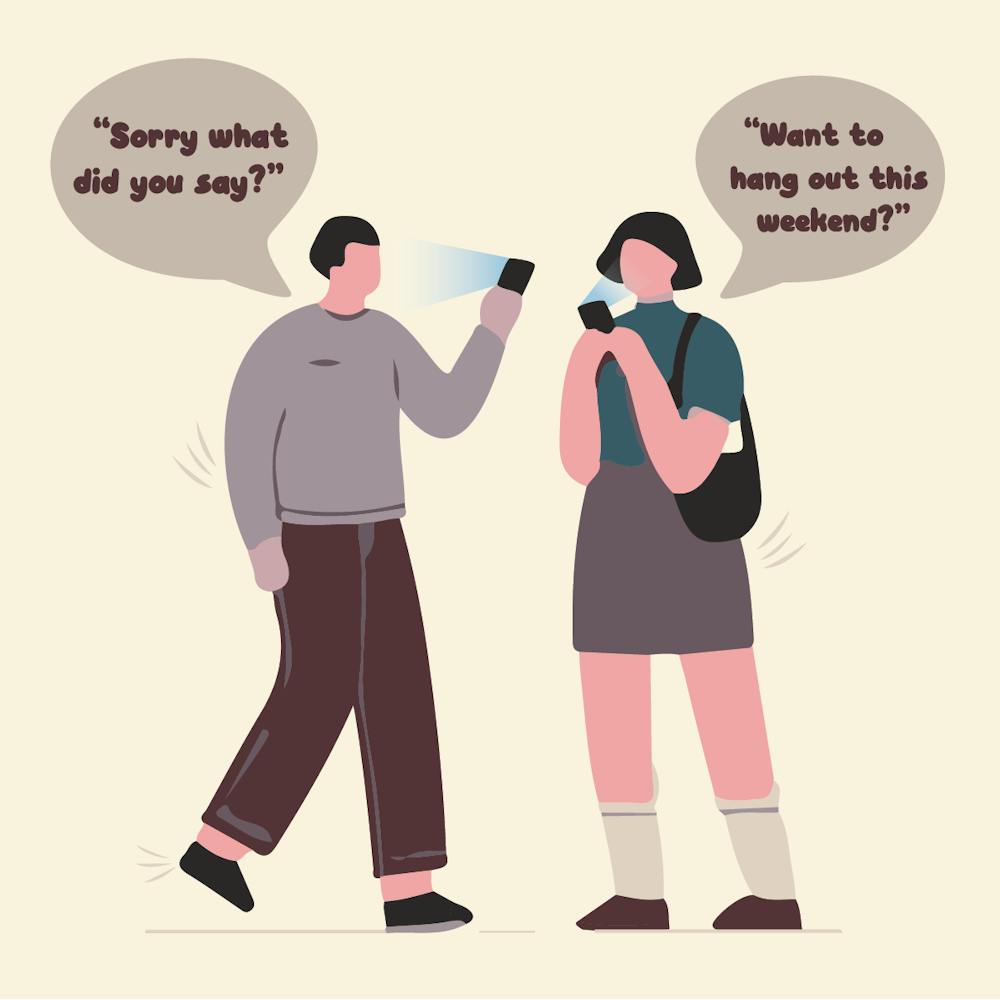As the high school graduates of the class of COVID-19 — I mean 2020 — prepare their caps and gowns, they set out on a path distinctively shaped by the pandemic. The very pandemic that, in many cases, served as a catalyst for the digitalization of the “college experience” here at Miami University (and across the world).
I have been a student at Miami since the fall of 2020 and experienced firsthand the effects of living on a near-desolate campus where every interaction was made behind a screen.
It was not an experience for the faint of heart, leading many to take semesters away from college as a way to focus on mental health. The familiar routines of learning had been disrupted, replaced by this new digital landscape that demanded adaptation from everyone … and everything.
Lily Edwards, a senior media and communication major, shared similar sentiments. As she admits, at times during the pandemic she “didn’t even feel like [she] was attending school,” and that the “learning aspect” of college felt like a joke.
This shift to a digitalized college experience is something that affected everyone from students to educators, but especially those without the resources to learn digitally.
“Not everyone has access to the internet like we think they do,” Edwards said.
And this is something that many seem to forget about. As many schools, including local institutions like the Talawanda School District and Miami, shifted toward a digital learning landscape, they left behind students without the means of access, creating an even further disconnect in the communication required for learning.
While the lack of internet access was a significant hurdle for some, the social disconnect during this digitalized college experience went beyond mere connectivity issues. It extended to a more profound absence of human interaction in the learning process.
Edwards explained that with online classes, “The bond that you have with your professors isn’t really there,” which is something that many students and faculty have come to similarly agree with.
Mack Hagood, an associate professor in the department of Media and Communication at Miami, has been teaching here since 2013. Hagood said one of the major reasons faculty choose teaching as a profession is the opportunity to assist and develop relationships with students. If this aspect dwindles, he explained, it makes the job less satisfying.
Many college graduates, including Hagood, emphasize the significance of active experiences in college, considering relationships, mentorship and collaboration as the most crucial aspects of the college experience.
Hagood said in an era where information is cheap and ubiquitous, what truly matters is how we choose to interact with it. With the shift to online learning, many students seemed to forget the essence of learning, and this is something that faculty are learning to adjust to.
Enjoy what you're reading?
Signup for our newsletter
As we transition back to a new normal, faculty are growing aware that many incoming students have missed essential formative learning in high school and may not be as prepared.
Hagood stressed that many of the essential skills that make up a “good student” simply aren’t as good — ranging from writing skills to the ability to persevere and take on complex assignments. This has proven to be quite a challenge for professors — as they understand they can’t blame students as individuals, because the problem is at a mass.
Discussions like these prompt one to consider how we can harness the benefits of our digital tools while still preserving the essence of learning. The balance between embracing technological advancements while maintaining human interaction in education is something that will likely continue to change with time, but it is also something that invites us to reflect on how we can adapt and shape the future of education to best serve the needs of students and faculty.
Whether we have returned to this state of “normalcy” or have simply redefined what can be considered as "normal" is still a matter of individual interpretation. However, one undeniable fact remains; the COVID-19 pandemic has left us with profound changes in our relationship with technology — more than we have yet come to understand.
Camila Lopez-Diaz is a third-year majoring in media and communication with an ETBD minor from Mason, Ohio. Along with her studies and writing for The Student’s Opinion section, they work as a writing student specialist at the Career Center.




